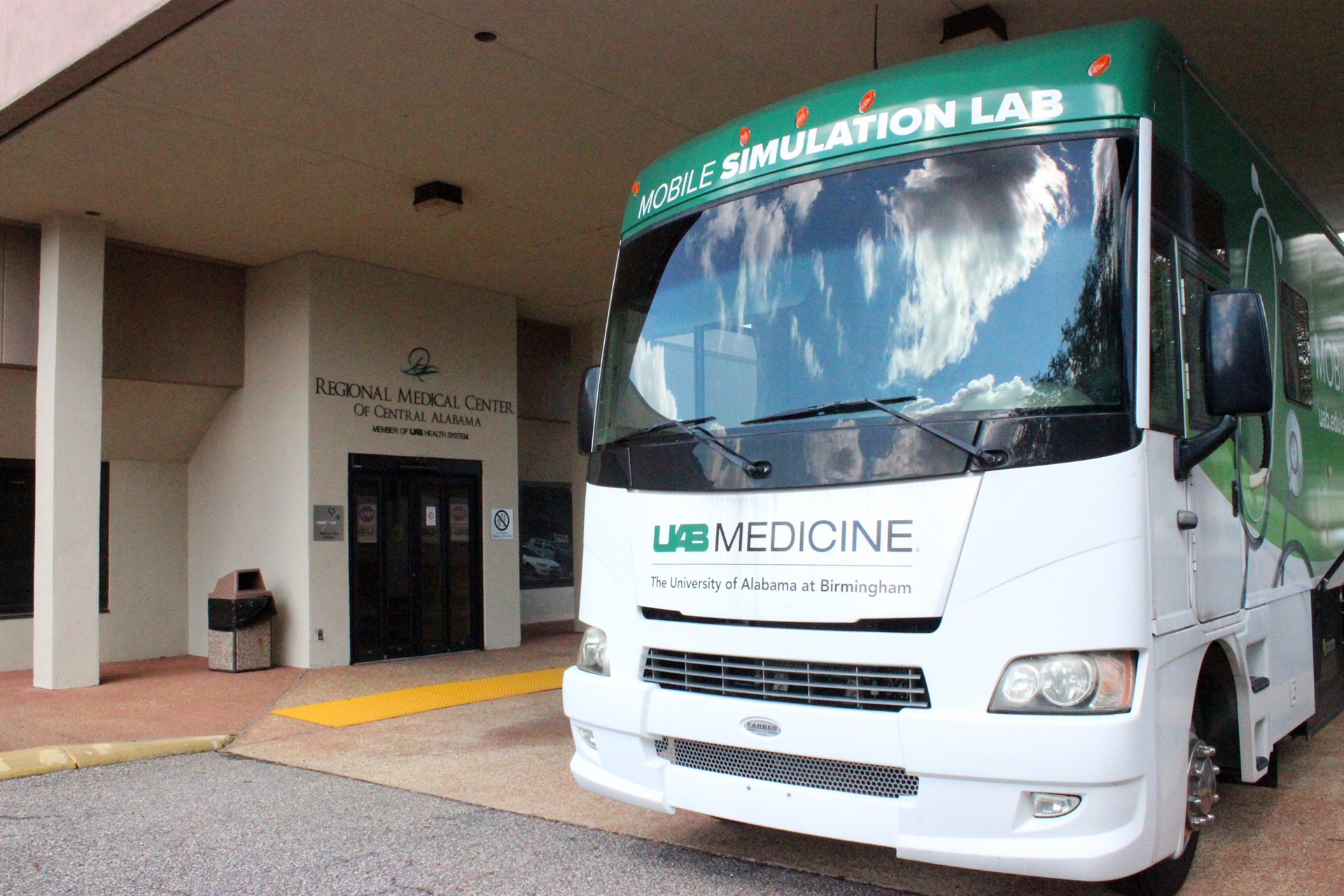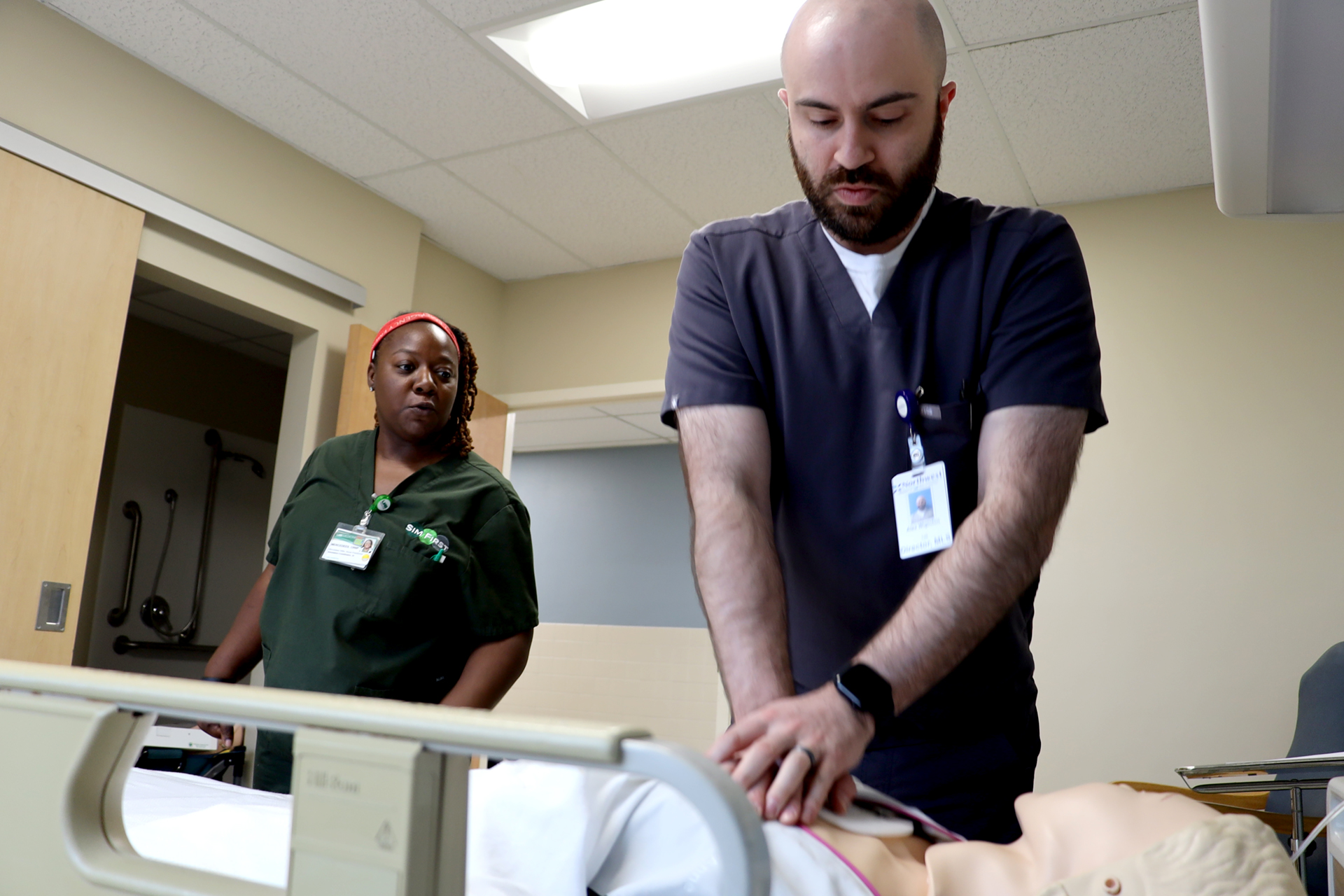Clinical Simulation hits the road with Mobile Simulation Lab

UAB Clinical Simulation is on the road again with its Mobile Simulation Lab, providing simulation resources to rural communities across Alabama.
As part of the Alabama Rural Health Collaborative (ARHC), the 38-foot mobile lab — the only one of its kind in the state — features two simulation areas equipped with the latest simulation technology. The program is designed to support the training objectives of ARHC’s 10 rural partner institutions, such as Northwest Regional Health in Winfield, Ala.
“I love it,” said Tiffany Hicks, director of education with Northwest Regional Health. “It’s a wonderful wealth of information and resources. Every time the mobile sim lab visits, I learn something new.”
Training sessions are tailored to work with both individuals and entire care teams, targeting the partner institutions’ specific needs and concerns, such as code skills, ultrasound-guided peripheral intravenous line insertion, precipitous delivery, opioid overdose, foley catheter insertion, central venous line insertion, airway management and more.
Further, the lab’s equipment was designed with portability in mind, meaning participants may practice within their facility’s own training spaces or in the mobile lab itself.
Hicks said the program has been a boon to Northwest Regional, considering the challenges often faced by rural health-care teams.
“One of the challenges with rural health care is limited resources,” she said. “Mobile simulation helps us stay up to date with the newest, most all-encompassing research and information.”
Mercedees Willis, mobile simulation coordinator with UAB Clinical Simulation, described the program as “a bridge in providing hands-on training to our partner hospitals across the state of Alabama.”

As such, the service is available for use by all ARHC-affiliated hospitals. In 2023 alone, the mobile simulation team conducted and traveled a total of 32 trips, providing experiences to 334 learners encompassing a broad spectrum of roles, including medical doctors, registered nurses, licensed practical nurses, certified nursing assistants, surgical technicians, pharmacists, nursing students, radiology technicians, respiratory therapists, dietary experts, patient registration staff, environmental services and more.
“Our rural hospital learners have shown extremely positive responses to the mobile sim program,” Willis said. “There have always been active engagement and demonstration of genuine care for the care they provide to their patients.”
Hicks agreed.
“Our staff really does enjoy it,” she said. “The mobile sim team always goes above and beyond to create a safe and comfortable learning environment.”
The evidence is in the feedback, Willis noted, with learner surveys yielding such comments as “We love when you guys visit” and “We love to sim; it’s fun.”
“Historically, we’re always invited to return,” Willis added.
The program launched in 2021, and Willis has seen its momentum — and mileage — grow each year.
“Experiencing the positive effects of simulation in my own clinical practice, as both a nurse and nurse practitioner, has been profound,” she said. “It’s fulfilling to provide learners with the opportunity to practice in a safe space without risking harm to patients. I know firsthand how this translates to a more confident provider and sincerely enjoy the opportunity to allow them the same feeling.”
To learn more about UAB Clinical Simulation’s Mobile Simulation Lab, visit here. To learn more about ARHC, visit here.




0 Comments